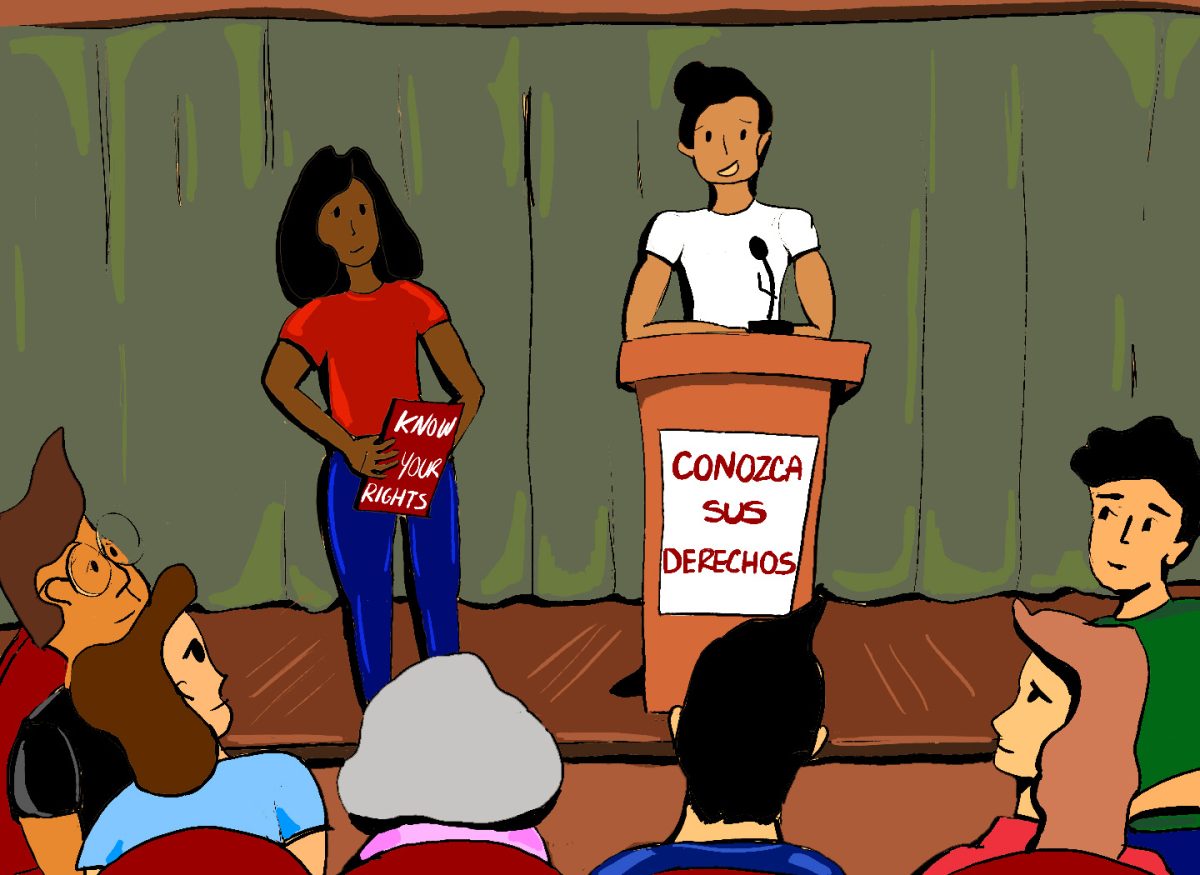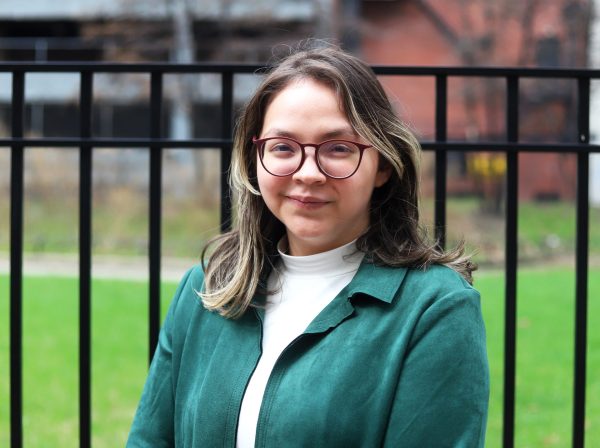Since President Donald Trump’s inauguration earlier this year, people from communities of color and those who are undocumented have been on edge.
The Department of Homeland Security released a statement three days after Trump took office outlining their efforts to apprehend and deport what they call “illegal aliens” through mass raids conducted by the U.S. Immigration and Customs Enforcement (ICE). Chicago is heavily targeted in this effort striking fear and despondence in previously vibrant communities.
Rene, a construction worker, going only by his first name for fear of legal action, lives in the Back of the Yards neighborhood in Chicago. He came to the U.S. from Chihuahua, Mexico, a few years ago and since he found out about the new deportation efforts, he has been afraid for himself and his family members.
Rumors and misinformation about ICE activity in neighborhoods heighten the fear and anxiety he and his family feel, Rene said. In addition, he is also frustrated that people in his community circulate this misinformation online.
“It’s our own Hispanic people that make everything more alarming than what it is,” said Rene.
After the DHS announced that ICE and other federal agencies would carry targeted arrests in January, images and information about ICE sightings flooded the internet. To combat misinformation, Rene said he fact-checks everything he sees online.
“I stay attentive to the news and I evaluate everything that comes out,” he said.
Diana Acevedo, a graphic designer who comes to the Back of the Yards Neighborhood Council for ballet folklorico lessons said that not knowing who the ICE raids could impact has made things “even scarier.”
“I don’t even know if they are going to take away certain citizenships, and from what date, and does that mean me? Does that mean my friend? Does that mean my family members?” she said.
Coupled with the misinformation online, Acevedo said that this has halted community gatherings.
However, knowing her rights has given her some peace of mind. She feels reassured that there are methods to protect and advocate for herself, Acevedo said.
“Even if in some way we’re caught up in that situation to know and advocate for ourselves, to keep pushing instead of just believing what’s being said, even if it’s misinformation from someone that we think is authority,” she said.
Acevedo said that she feels “really sad and disappointed” about recent developments in mass deportation efforts.
“I know I’ve grown up here my entire life. I know the people in the area. I know how hardworking we are,” said Acevedo.
Organizations like the Illinois Coalition for Immigrant and Refugee Rights (ICIRR) and Organized Communities Against Deportations (OCAD) ensure that people are supported, get verified information and know their legal rights.
“Knowing your rights is empowering, coming together as a community is a form of safety,” said Brandon Lee, the communications director at ICIRR.
Lee said that their verification process starts right after a call comes into the hotline. Thereafter, the organization will send trained rapid-response members into neighborhoods.
They will speak to people in the neighborhood, find out if anyone has been arrested and connect their families with legal services, Lee said.
OCAD and ICIRR collaborate and coordinate 23 rapid response groups across the city. They gather as much information as they can from people.
Antonio Gutierrez, co-founder and strategic coordinator for OCAD, said that the organization treats every single call that comes through their hotline as confirmed ICE activity.
“When a tip comes to OCAD…we communicate that to the leads of each of those groups, and we let them know that this is happening. We let them know as much information as was presented to us,” Gutierrez said.
When OCAD receives videos from social media that may have previously been fact-checked, Gutierrez said that they notify the person who posted the video about its accuracy.
Gutierrez said that the goal of these ICE raids and deportation efforts is to strike “fear and hopelessness” in people. However, they see that people are using OCAD’s advice to their benefit.
“It just shows that information is working,” they said. “We’re not teaching how to avoid arrest. We’re teaching them [their] rights.”
OCAD and ICIRR also provide support in cases where an arrest is made, providing legal support, collecting important evidence and working together with the community to prepare for a deportation defense.
“An arrest during an ICE activity is not the end of the game. It’s actually the beginning in many instances,” said Gutierrez. “If people are, in fact, arrested or detained by ICE, we want them to also call us so that we can find ways to support them.”
A community member from Back of the Yards, working in a butcher shop and choosing to remain anonymous for personal safety, said that knowing his rights and knowing about local groups has made him feel safer.
“You’re not just with your hands tied; there are ways to navigate these situations,” he said.
Alondra M. Castañeda contributed to reporting and translating this story.





